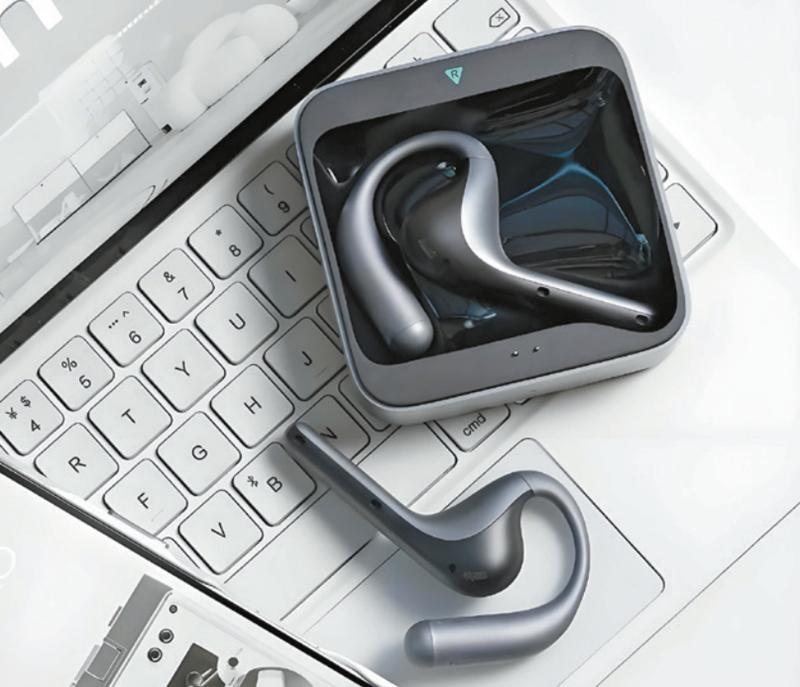In an interpretation duel that pitted seasoned human interpreters against machines, held in Shenzhen in June, Shenzhen-based Timekettle’s W4 Pro AI real-time translation earbuds scored a resounding victory, outpacing their human rivals by more than 1,000 points.
The earbuds provide bidirectional call translation across 40 languages with a delay of only 3-to-5 seconds, which is much faster than the 10-second delay of similar earbuds.

Timekettle’s W4 Pro AI earbuds. File photo
The contest mirrors the larger story of Shenzhen’s smart earphone industry, according to a report by Southern Finance Omnimedia. Shenzhen-based veteran audio brands include Grandsun, Edifier, Creative All, and 1MORE, alongside tech giants like Huawei and Timekettle.
Shenzhen is sprinting ahead in the global race for AI-powered earbuds. By 2026, Shenzhen’s AI product industry is expected to exceed 800 billion yuan (US$112 billion) and cover niche areas such as smart glasses, watches, earbuds, and AR/VR devices, according to an action plan released by the city government earlier this year.
Timekettle’s AI earbuds — which integrate real-time translation, voice assistants, health monitoring, and fitness feedback — were ranked by insiders as the next-generation personal device after smartphones and smartwatches.
The company now commands more than 30% of the North American AI-earbud market, and the export volume of its AI earbuds increases by over 80% each year. Timekettle has amassed more than 300,000 users in 200-plus countries, as per the firm.
Grandsun unveiled the Cleer Clip Arc — the world’s first open-ear AI headphones — this year. By decreasing their weight by 85%, from 240 grams to just 40 grams, the company has redefined the form factor of over-ear audio.
Shokz, another Shenzhen powerhouse, accounted for 70% of global shipments of bone-conduction headphones in 2021. Its open-ear and sports models now sit atop worldwide sales charts, holding a 40% share of North America’s sports-headset market.
Edifier ships its products to more than 80 countries and regions, including Germany, the U.K., and France.
He Tao, Timekettle’s China PR director, notes that roughly three-to-five new products appear every one-to-two months in the AI and translation-earbud sector.
“Shenzhen has a sound supply chain for the production of smart earbuds,” He explained. “A demo that takes a month elsewhere can be completed here in as little as three days to a week.”
Data from RUNTO Technology, a leading Chinese market research firm focused on global displays and consumer electronics, show that Chinese e-commerce platforms sold 315,000 AI-enabled headsets in 2024 — an eye-popping 405% year-on-year leap that made the category the fastest-growing segment of the entire headphone market.
Canalys, a leading global technology market analysis firm, projects that global shipments of AI earbuds will continue to grow at a double-digit pace in 2025, surpassing 100 million units for the year.